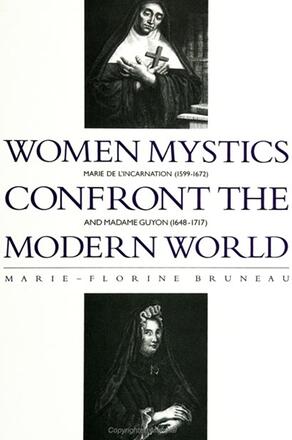
Women Mystics Confront the Modern World
Marie de l'Incarnation (1599-1672) and Madame Guyon (1648-1717)
Alternative formats available from:
Situates the female mystical tradition within the context of the epistemological shift which occurred at the dawn of the modern world.
Description
Women Mystics Confront the Modern World situates the female mystical tradition within the context of the epistemological shift which affected religious sentiments and the perception of the self at the dawn of the modern world. Anchored in a comprehensive knowledge of the religious history of seventeenth-century France, this book offers a vivid account of the fascinating lives and work of two exceptional women. Marie de l'Incarnation (1599-1672) and Madame Guyon (1648-1717) continue a literary and spiritual tradition that had begun in the thirteenth century. Yet, because they were at a crucial point in the history of Western mysticism, when this movement was at once at its apogee and in the first stages of decline, their writings show indications of a changing mentality. These transformations shed light on the social significance of female mysticism in the Western tradition. The opportunities the two women seized or shunned highlight their maneuvering for validation and autonomy. But their choices also highlight many contradictions, compromises, and limits imposed upon their self-expression.
At the confluence of French and American scholarship on mysticism, this work joins these two schools of thought by introducing gender as a viable category of inquiry into the one and by tempering the overly-optimistic interpretation of female mysticism of the other.
Marie-Florine Bruneau is Professor of French at the University of Southern California. Her previous work includes Racine, le Jansenisme et la modernite.
Reviews
"This historical, socio-psychological, feminist study of the writing of two seventeenth-century women mystics is an eye-opener. It renders vividly the practical and moral problems that these women faced, or preferred to ignore, as they left family constraints to lead a solely religious life, then struggled against the church for their right to interact with God, with themselves, with their children, and all others as they saw fit while progressing on a spiritual path of their own. This book brings to light the momentous difficulties that family and church raised for these two women. In pointing out their phenomenal strength, skills, wiles, and paradoxes as they confronted hostile environments adamant about silencing them, this book is a decisive step toward the understanding of the appearance and meaning of modern autobiography. " -- Elisabeth Caron, Indiana University Northwest